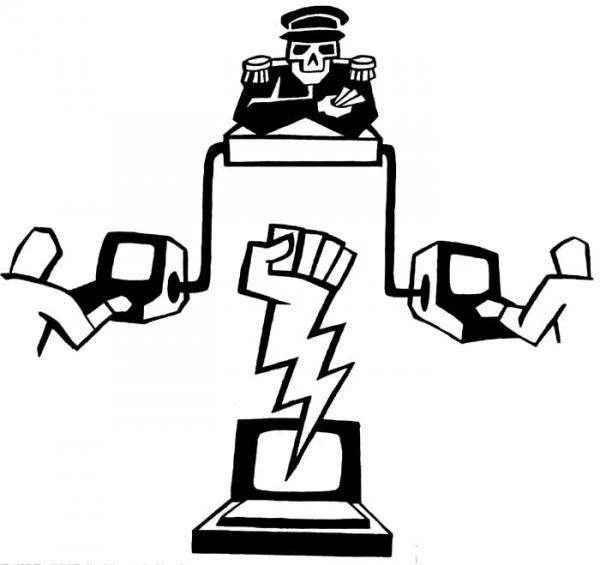New ideas, though frequently unpopular, have the potential to change society and create new theoretical frameworks. A decentralized, community based Internet is a new idea worth putting into action.
I’ve never paid too much attention of the specifics of networking, hosting and computer programming, but the recent censorship of BitTorrent sites and WikiLeaks has obviously forced us to think about this more than ever. It has made me yearn for a world without the establishment’s Internet.
To hell with their censorship I say.
Besides the FCC has pretty much handed that version of the Internet that we know and love over to large corporations and I predict that it will slowly go the way of the dodo. Establishment Republicans claim they’ll fight it tooth and nail, we shall see.

What use do we have for an Internet that is subject to government and corporate censorship as well as numerous pay walls? None, there would be no use for such a system, yet all of the writing on the wall tells us that this is what could begin happening, it could even happen this year.
They’re killing the Internet damn it.
That’s why the concept of a decentralized, community built Internet has become so appealing.
I read about author Douglas Rushkoff on The Raw Story, and then I came across his recent blog post on Shareable.net, that was actually my first exposure to this idea. Though I wouldn’t be surprised if this is not the first time people have toyed with the idea of their own form of the Internet.
He proposes, based on the Internet’s past, present, and future that concerned citizens build their own open source Internet.
It would be a bold and creative way to fight the power when it comes to the Internet. It’s extremely possible that something like this might be needed in the near future. Think about how big an opportunity this could be for people in the technology sector to come along and provide products and services geared toward open source Internet pioneers and hobbyists.
Because of the obvious difficulty that would come with undertaking such a huge project, Rushkoff suggests that it would have to be a rather large cooperative effort among people with the necessary skills. Thankfully technology makes cooperation amongst people easier than ever before. The project would be a worthwhile way for people to spend their time online and they would also be helping to change the world.
This dedicated online collaboration in support of a shared goal is described by Clay Shirky as the theory of cognitive surplus. It is a powerful idea as well, and it can be used to shift the Internet paradigm.
One important thing to think about if you were to ever consider a project like this is the source of funding to make it happen. Rushkoff’s rhetorical questions about how to fund such an operation are almost as important as the idea itself:
“Do we ask George Soros for some money? MacArthur Foundation? Do we even need or want them or money at all? How might the funding of our network by a central bank issued currency, or a private foundation, or a public university, bias the very architecture we are trying to build? Who gets the ability to govern or limit what may spread over our network, if anyone? Should there be ways for us to transact?”
Do cooperative Internet networks built and controlled by local and digital communities exist yet? We have the knowledge and hardware to at least give it a shot.






